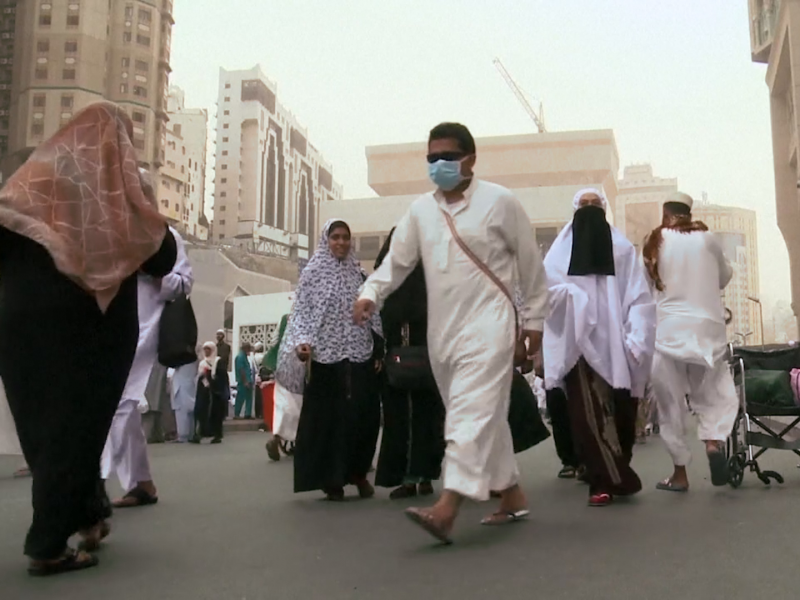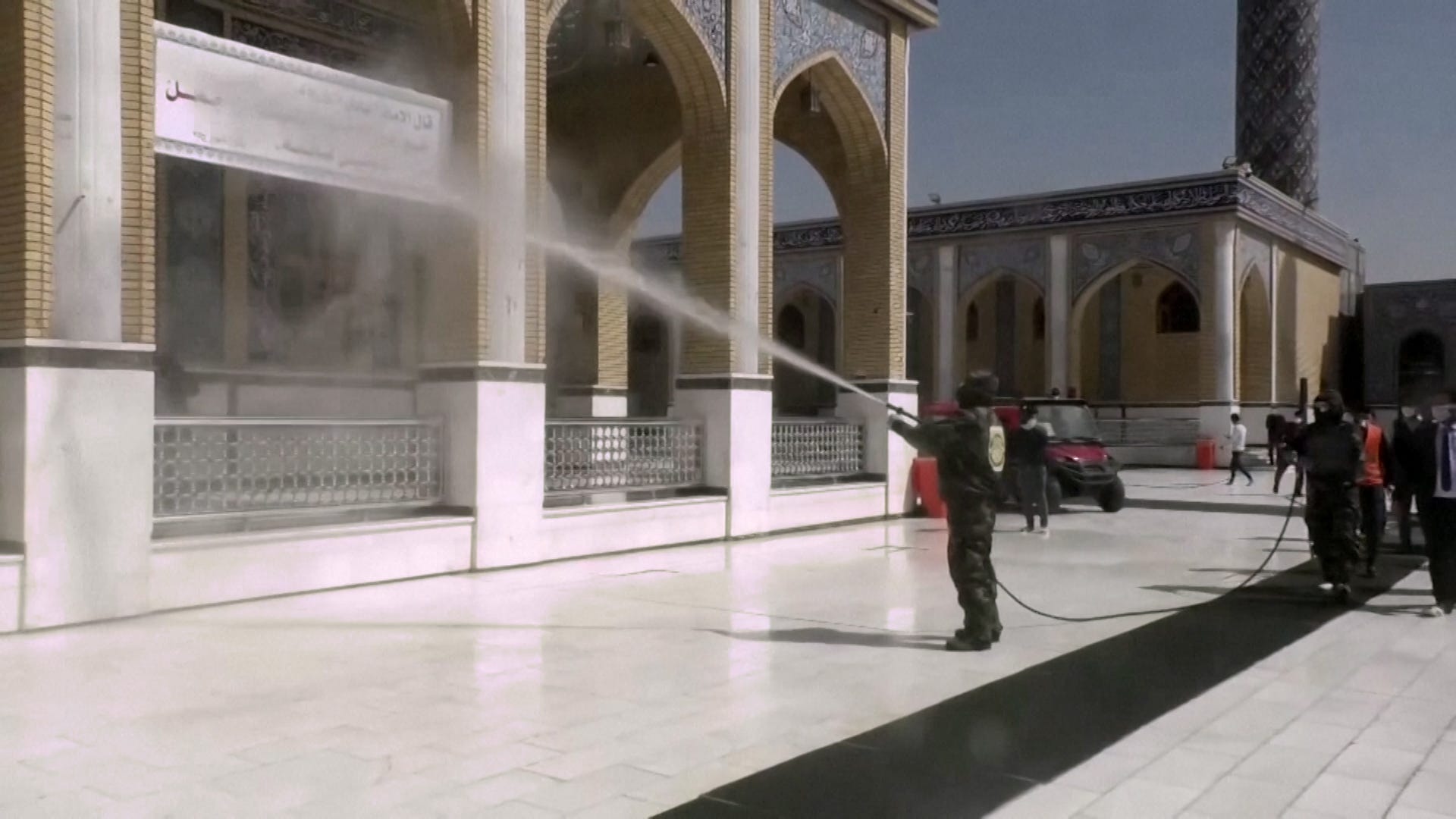- Mosques across the Middle East are being disinfected to help combat the spread of the novel coronavirus.
- Iran has reported the second most virus-related deaths outside of China.
- Meanwhile, Saudi Arabia has stopped overseas Muslims from making pilgrimages to Mecca.
- This isn’t the first time a coronavirus has spread across the region. In 2012, Middle East respiratory syndrome was first reported in Saudi Arabia.
- View more episodes of Business Insider Today on Facebook.
Following is a transcript of an episode of Business Insider Today. Watch the full episode here.
One of the holiest mosques in Iraq was recently sprayed with disinfectant to help prevent the spread of the coronavirus.
The Great Mosque of Kufa temporarily closed its doors to worshippers for the deep cleaning, as the Iraqi government shut schools and cafes and banned large public gatherings.
Countries across the Middle East are canceling traditional religious events, forcing many worshippers to decide whether to practice their faith as usual or protect their health.
In Iraq, the ministry of industry started manufacturing face masks and distributing them to the public. This happened soon after the first reported cases, including a family of four who tested positive after returning from Iran in late February. Since then, the country has documented at least 60 infections and 6 deaths.
The situation is much worse in Iran, which currently has the second highest number of coronavirus deaths reported outside of China, with 237 lethal cases out of more than 7,000 infected.
Even several high-ranking members of the Iranian government have also contracted the virus.
At the start of the outbreak in China, Iran donated 3 million face masks to the country, but now, Iran itself is facing a shortage.
Reports of widespread stockpiling have caused the government to crack down on sales of medical supplies on the black market. Police say they have confiscated nearly 7 million face masks and made at least 70 arrests.
And in an extremely rare move, Iranian officials canceled large-scale Friday prayers in more than 20 cities.
Over in Saudi Arabia, officials abruptly stopped issuing tourist visas to foreigners planning umrah pilgrimages to the world's holiest Muslim sites in Mecca and Medina.
Millions of people from all over the world - including more than 1 million Indonesian Muslims alone - take this type of pilgrimage throughout the year.

These pilgrims were told their trip to Mecca was canceled just two days before they were scheduled to leave home.
Andri Kurniaputra, Indonesian pilgrim: "We are quite disappointed because I have been longing to visit the Great Mosque, but God willing, hopefully this will only be a temporary postponement."
It is uncertain if the government will extend the travel ban during the annual hajj pilgrimage in July, when more than 2 million people are expected to visit the country.
It would be unprecedented for Saudi authorities to implement similar restrictions for this traditional event.
The hajj wasn't disrupted even the last time the country had to deal with a virus outbreak.
Starting in 2012, Saudi Arabia has seen more than 2,000 cases of Middle East respiratory syndrome - known as MERS. More than 800 people have died as of this year.
And as the coronavirus continues to spread across the region, the cleansing of mosques like the one in Kufa, Iraq, may become a regular part of life and worship.
